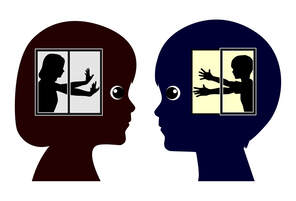|
The kids were running late for school and Sarah was starting to grow impatient and get angry. 12-year-old Sam wanted to grab a snack, and Peter the 10-year-old was arguing with his sister who was making fun of him. Everyone was ignoring her! Sam opened a can of almonds spilling them everywhere. And also stepped on Sarah’s foot.
Sarah was working from home now and this was her third week. She was tired because she had been juggling online meetings and trying to get the Kiddos into a new routine. It was hot. It was also hard being a solo parent and she lost it. She shouted in her son Sam’s face – not exactly the kind and consistent approach she had been striving for as a working from home mum. But it happened. Impatience and Anger We all get angry. Depending on your personality style, these impatient and angry moments can be quite frequent. Look, it’s part of life, sometimes we lose our temper. “Parents are not intentionally going into a situation and saying if my child misbehaves, I’m going to blow up at them and yell uncontrollably,” says Karen Bridbord, PhD, a psychologist certified by the Gottman Institute, who specializes in relationships. It’s how we’re programmed to respond. “We call it ‘amygdala hijacking,'” says Bridbord. “Our emotions overwhelm us, and our heart rate is escalating. Our bodies experience the situation as if we are in fight or flight mode.” But this natural response evolved to save us from saber-toothed tigers, not to negotiate the subtler challenges of being a parent. So, how do we move into “action” and not react in an angry or impatient way? Often when we react we criticize, humiliate, or even ridicule. Instead of targeting your kids’ behavior, it becomes a personal criticism. Like “You never listen to me!”, or “You’re so slow all the time”. Shaming or naming only leads to feelings of unworthiness or inadequacy, says Linda Kavelin Popov, author of the Family Virtues Guide. It’s about taking a breath in and saying to yourself this word that I teach to the children in my DISCovering Me Program for Youth. Can you guess the word? It’s STOP! It’s one of my mantras I often use. Carla Naumburg, PhD, author of “Parenting in the Present Moment” has a great acronym for STOP. “S is for Stop, T is for Take a breath, O is for Observe, P is for Proceed,” says Naumburg. “The idea is to stop whatever you are doing, take a deep breath, and notice what’s going on around you. You can get a little headspace before responding, so you can be more thoughtful instead of going into a “knee jerk” reaction. Why the DISC Styles React Under Stress In the DISC Model for Observable Behavior there are four Primary Styles: Dominance, Influence, Steadiness and Compliance and each one reacts a certain way when under stress – becomes impatient and angry. Before I go on to explain when and how each style reacts, too remember what the four styles are, think of four birds. Yep that’s right birds. Here they are: Eagle is for Dominance, Parrot is for Influence, Dove is for Steadiness and Owl is for Compliance. You can learn more about these styles by going to one of my Blog Posts. Just like hunger primes a toddler for a tantrum, or a teen not being allowed out with their friends, parents have triggers too. Here are the personal fears and what each Bird Style becomes when under stress – or when they might become impatient or angry. The EAGLE Style’s personal fear is losing. What I mean here is, when they feel that they are losing control of the situation. They see their environment as antagonistic and so have a belief they need to take charge. Under stress they may become a bit of a dictator and others will experience them as aggressive. Definitely patience is not a virtue that comes easily to an Eagle. So, if you see yourself as an Eagle, remember what the mantra is that I often use? Yep, STOP! And take a breath. The PARROT Style’s personal fear is rejection. They like to focus on people and can be somewhat disorganized and spontaneous. Under stress the Parrot may become sarcastic and others will sometimes experience them as superficial. When becoming angry they will have a difficult time controlling their emotions. If you see yourself as a Parrot I’ll say it again just like I asked the Eagle, what’s the mantra I often use? STOP and take a breath! The DOVE Style’s personal fear is sudden change. Just like the Parrot their focus is on people and they can be indecisive and indirect when under stress. Doves become irritated when others are insensitive. They find it hard to be assertive, so will often not share how they’re feeling. So, if the kids are running late for the school bus, oh boy, their patience will wear thin, even though patience is one of their virtue strengths. If you see yourself as a Dove what’s that mantra again? The OWL Style’s personal fear is being wrong. They like to focus on the details of the task and are comfortable with planning and order. Owls need to work on worrying less about everything. Under stress this style withdraws and becomes headstrong. When it comes to their personal limitations others see them as too critical and impersonal. So, if you think that you might be an Owl my mantra applies to you as well….say to yourself STOP and then take a breath! Or maybe even a couple of breaths. Adapt to Manage those Difficult Moments “Adapting” doesn’t mean “imitating” another person’s style. It means staying true to yourself while simultaneously considering the wants and needs of your kids and other family members. You know how to negotiate relationships in a way that allows everyone to win. Maintaining adaptability in every situation may cause long term stress for you. However, much like working out our muscles and becoming sore afterwards, practicing moderate adaptability will allow you to become comfortable with it over time. Remember, practicing no adaptability, would cause your kids to view you as rigid and uncompromising because you insist on behaving according to your own natural style with no regard for their preferences. Oh, and by the way they have a Bird Style as well, so it helps to know what each of your Styles are. Want to find out? Take my Free Summary DISC assessment. In my next Blog post – Part 2, I’m going to share about how you can develop certain Virtue Strengths or as some call them human qualities, for dealing with situations that make you feel angry and impatient. I’ll also share some affirmations (positive statements) that I use to challenge and overcome my self-sabotaging and negative thoughts. When you repeat them often, and believe in them, you can start to make positive changes. I invite you to share my mantra - STOP and breathe, and this Blog with others that you know to help when anger and impatience takes over – situations we have all experienced with our kids and spouse.
2 Comments
Let me ask you some questions...
Are you feeling tired? Have you lost the pleasure in parenting? Are you emotionally distancing yourself from your children? Are you feeling tired, and only do what you have to do with your children? If you have answered yes to one or more of the questions you may have parenting burnout. Parenting burnout can make you feel detached from your children and unsure of your parenting abilities. Whether you are a father, mother or a single parent it can occur when you have been exposed to too much stress. Depending on what personality style you have will depend on how you manage this stress. In the DISC Behavioral Model there are four types of personalities and each of these have different needs, emotions and fears. DISC is an acronym for Dominance, Interactive, Steadiness and Compliance, and these are the four styles. D's (Dominant) and I's (Interactive) tend to be extroverted whereas S's (Steady) and C's (Compliant) tend to be introverted. Different Styles With Introverts and Extroverts there’s a tension because both have a different pace. Dominant and Interactive Styles are outgoing and have a FAST Pace. Whereas Steady and Compliant Styles have a SLOWER Pace. When one parent is a D Style and has a need to win, the other one may sense they have been short changed. And the outcome is resentment. Even though the S Style parent holds on to resentment, they do get along with everybody when it comes to tasks. They are the universal antidote for disharmony in the family. They are calm and and can stabilise conflict situations. But they really do need to work on forgiving the other person, as they can be a bit of a grudge holder at times. When it comes to personality style combinations, theses three combinations are the least compatible naturally:
The most difficult two styles that parent together are the D’s and C’s. For it to work both must be willing to yield their personal control needs, with D’s deciding to give some space and the C’s learning to be much more direct and open about their concerns. So, what can we do as parents when we have these combinations of Styles. It’s really about practicing tolerance by accepting these differences and not being so judgemental. Also practice patience especially if you are a D Style. Forgiving others also allows you to let go of resentments, and will free you from the needless pain of reliving a hurt over and over. Practice self-forgiveness so that you can move forward, ready to do things differently, with compassion for yourself and have faith that you can change. Under stress the D Style parent will dictate and become augmentative. They become irritated with indecision and inefficiency. So the I Style can definitely irritate them with their lack of follow through and disorganisation. The I Style parent will become sarcastic and superficial and is irritated when they have to deal with routines and the complexity of bringing up a family and life in general. Under stress the S Style will become submissive and indecisive and is irritated by others that are insensitive. If anything unexpected should happen this will also irritate them. Whereas the C Style parent will become withdrawn and headstrong when stressed and when others make mistakes or are irrational it will irritate them. Are you starting to see where the burnout might occur when each of the Styles is irritated and is also constantly trying to get their behavioural needs met? The C Style parent is a perfectionist and they will constantly be trying to find the facts in everything they do and their personal limitation is that they are too critical. Even with themselves they are their worst critics. They can also be seen as impersonal. So, what can you do if you are feeling burnt out? As a parent it’s not that easy to quit your job either is it! Well the first thing is to realise that you are burnt out or on the way to being out. And then ask for support. Each of the styles might find it hard to do this. The D’s like to be in control and will not want someone else telling them what to do. The I’s personal fear is rejection and social disapproval so they might not ask for help as the rest of their extended family might disapprove of them. The S’s and the C’s both hide their emotions and will need time to process it all. Tips for eliminating parenting burnout... It’s about having the courage to reach out and ask for the support you need, because at the end of the day of you don’t the family dynamics will suffer. That includes you as well! Have compassion for yourself and take time out to recharge your batteries especially if you are an introvert. And don’t feel guilty for doing so. S Style parents you don’t have to continually be steady the pace 110% of the time! Let your kids serve you sometimes! Be gentle on yourself and find someone that will listen to you without judging you so that you can as I say “empty your cup”. And remember for things to change first you must change! Introvert or Extrovert? Which one is your Child?
Bickering between siblings can be very draining to some kids, not to mention us as parents as well. Does your child get upset easily and lock themselves in their bedroom a lot? Does one of your kids just cruise along in life with high energy levels, is outgoing and the life of the party, and the other one is not? There are introverts and extroverts in the world. Each one has a different temperament, that comes with a whole set of behaviours. Introverts are energised by spending time on their own, while extroverts are energised by spending time in the company of others. In the DISC Behavioural Model High D and I Styles tend to be seen as Extroverts, whereas the High S and C Styles are seen as Introverts. If your child is an Introvert they are energised by spending time on their own. So don't be alarmed, thinking they are isolating themselves from the rest of the family if they like to spend time in their bedroom. Sometimes when coming home from school, where they have been spending their day socializing and interacting with others, they need to take time out to recharge their batteries. Remember that home is a safe space where they can chill out. Extroverts on the other hand, are energised by spending time in the company of other and tend to like social events and recharging their batteries by interacting with people and socialising. A High I Style teen will definitely like heading to the mall after school to hangout with their friends! They connect differently... The child that is a High C Style Introvert likes one-on-one, deep conversations, where they can analyse and think about all the details. The child that is a High S Style Introvert tends to need more time to mentally process new situations before they interact with others and also need time to think about how they are feeling. They like to form deep relationships and really love getting to know someone, their hobbies, interests, etc. Both Styles are happy to have only a handful of friends. Whereas the High D and I Style Extroverts seem to like group conversations. The High I Style Extrovert likes being friends with many people but they don't feel the need to form deep relationships as the Introverts do. Are you starting to see your children in any of these statements? I just want to say that there is no good or bad temperament to have. Some people think that Introverted children are shy. It's not that they're shy, it's just that they are thinkers. The High S Style Introvert will be deep in thought or "thoughtful". There's a big difference to being shy vs a deep thinker. So, remember that all behaviour is communication, communicating the emotions and needs relating to the four style's temperaments. In the world there are introverts and extroverts and it's not about Introverts being anti social. At the end of the day it's all about where your child get's their energy. It is our job as parents to help our kids be who they are in the world, whether they are Introverted or Extroverted. Please share this post if you have gained some value in reading it. Also if you would like to identify what the DISC Style of your children are, click here to purchase our Mini Me Survey. It's only $5 and can be printed out and used for each one of your children. Excuse Me Your Personality is Showing - DISC Mini-Me Survey For those of you in sales, have you ever wondered what the art of schmoozing means? You probably won’t find the word “schmoozing” in an English dictionary, so let me give you Suri’s definition. The informal meaning: To talk with someone in a lively and friendly way, typically in order to impress them. Basically, it’s to make a positive first impression. In sales, the first impression could be the difference between a closed and lost deal. And we don’t have a second chance to make a first impression. For many of us, we don’t know how to make that first impression count. As you keep reading, you’ll find the answers. It’s not as hard as you think. Make a Lasting and Positive First ImpressionWhat really makes a lasting and positive first impression is to bring a high level of self confidence to your interactions. Tune in to what the other person is telegraphing – through their face, voice, posture, gestures, words, and overall interactions with you. Especially when you are in a sales role. It starts when you know how to replace the “Golden Rule” with the “Platinum Rule”… “Treat people the way they like to be treated!” What a concept! Imagine mirroring your prospect’s body language. What if you could “mirror” their personality? What if you treat them the way they like? This is not as easy as it first sounds because most people treat others the way they like being treated themselves. Since there are 4 primary styles (Dominant, Influence, Steady and Comply), this only works with a quarter of the population! That’s 3 quarters of the population you’re missing out. Using DISC to build instant rapport
The free DISC assessment provides great insights into the needs and emotions of the four DISC Styles. Here are some tips to use those insights to build instant rapport: High "D" (Dominant) Styles
High "I" (Influence) Styles
High "S" (Steady) Styles
High "C" (Comply) Styles
In order to master the subtle art of people−reading, you must first become familiar with the concept of Personality Style. With this knowledge, learn to be your best and be more socially aware of how to interact with others when selling. Here’s the good news. We have a DISC Report that identifies your DISC Styles. It’s called the DISC For Sales Report. With this personalized and comprehensive report, it will give you tools to help you become a better you. You get to develop and use more of your natural strengths while recognizing, improving upon, and modifying your limitations. By seeing and hearing these behaviors, you can quickly and accurately “read” other people. Use this knowledge to enhance communication and grow your relationships when selling. It will also introduce you to the five definable stages of the buying cycle. If you can successfully guide prospects through each stage, it will lead to positive outcomes for both of you. And that my friend will lead to more sales for you! |
AuthorSandra is very passionate about supporting others to be the best they can be through sharing her stories and experiences she has gained along the way... Categories
All
Archives
March 2022
|
Partner with PeopleSmart
© Copyright 2024 - PeopleSmart Enterprises NZ Ltd. All Rights Reserved.
Privacy Policy





 RSS Feed
RSS Feed